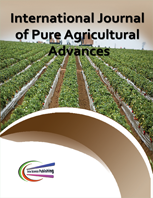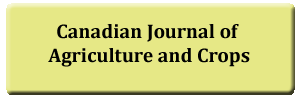Impact of Credit on Income of Cassava-Based Crop Farmers Under the National Special Progammeon Food Security in Enugu State, Nigeria
DOI:
https://doi.org/10.20448/813.31.14.21Keywords:
Cassava, Income, Credit, Impact, National special programme on food security, Farmers.Abstract
The study examined the impact of credit on income of cassava-based crop farmers under the National Special Programme on Food Security (NSPFS) in Enugu State, Nigeria. Purposive and multi-stage random sampling techniques were utilized in selecting three hundred and sixty respondents (comprised 180 NSPFS participants and 180 non-participants) used for the study. Data were obtained with the aid of structured interview schedule and Focus Group Discussion, and analyzed using descriptive and inferential statistics such as means, percentages, Z-test, ordinary least squares regression and chow’s test. Results show that, for participants, farming experience (5%), farm size (1%) and household size (5%) were positive and significant determinants of income. For non-participants farming experience, farm size and household size were all significant determinants of income at 1% level. From the result, access to market significantly and positively influenced the income of NSPFS participants at 5% but significantly and negatively influenced the income of non- participants at 1%. Hired labour was significantly and negatively related to the income of participants and non- participants at 1%. Participants of NSPFS credit scheme, on average, earned higher incomes than non- participants. The income difference between participants and non- participants was due to access to credit under the programme. The NSPFS credit scheme positively influenced farmers’ income. It was recommended that the programme should be sustained and extended to other areas of the state to economically empower more farmers.


